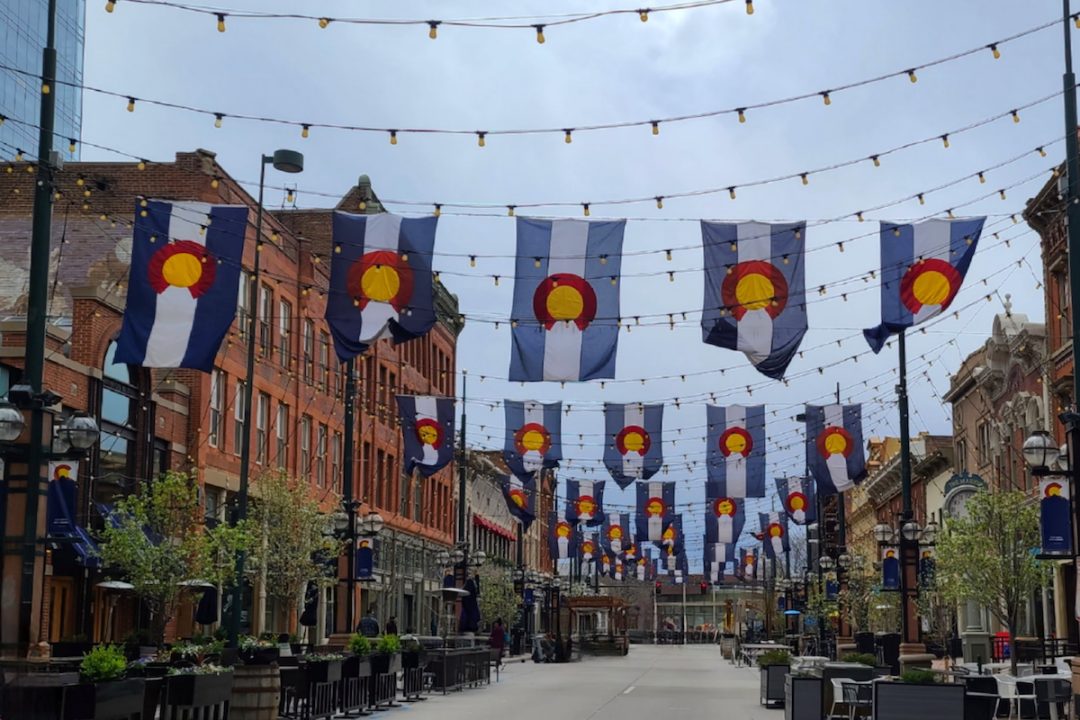
The Trump administration has added Colorado and capital Denver to the list of states and municipalities the administration has sued to overturn their unlawful sanctuary laws and policies.
Filed last week, the lawsuit says the state and city are trespassing the Supremacy Clause of the federal Constitution by interfering with the enforcement of federal immigration laws.
The Centennial State and Mile High City are the sixth and seventh jurisdictions targeted by the U.S. Justice Department. In February, DOJ sued New York and New York City and Illinois, Chicago, and surrounding Cook County. At the time, U.S. Attorney General Pam Bondi warned that illegal-alien sanctuaries had better lawyer up.
Just after President Donald Trump shellacked former Vice President Kamala Harris on November 5, far-left Denver Mayor Mike Johnston firmly said he would incite a rebellion and insurrection against federal authorities if they tried to carry out Trump’s plan for mass deportations.
The Lawsuit
The 24-page lawsuit argues that three state laws, a city ordinance, and a mayoral executive order “by intent and design interfere with and discriminate against the Federal Government’s enforcement of federal immigration law,” which “violates the Supremacy Clause of the United States Constitution.”
That’s because “federal immigration law expressly preempts state and local laws that restrict sharing information ‘regarding the citizenship or immigration status, lawful or unlawful, or any individual,’ … which broadly encompasses, among other things, ‘the presence, whereabouts, or activities’ of aliens with the Federal Government.”
As well, those state and local laws and policies are an “obstacle” to the enforcement of federal immigration law. Indeed, they “were enacted for the sole purpose of impeding the Federal Government’s ability to enforce immigration law and remove illegal aliens,” the lawsuit avers.
The lawsuit notes that the state’s “local communities” suffer under the policies, citing Douglas County Commissioner Kevin Winkle. “We swore an oath to protect public safety, but these laws prevent us from doing so,” Winkle has said. As well, he has said, “these laws require us to conceal the identity of those who committed a crime and are here illegally. That’s a serious public safety issue.”
Said County Commissioner George Teal, “Douglas County is not a sanctuary county. We want to work with the federal government on issues of illegal immigration to keep our community safe.”
But state law forbids that.
Law #1
The first bill cited in the lawsuit, HB 19-1124, says that a Colorado law-enforcement officer “shall not arrest or detain an individual on the basis of a civil immigration detainer request,” and “the continued detention of an inmate at the request of federal immigration authorities beyond when he or she would otherwise be released constitutes a warrantless arrest, which is unconstitutional.”
As well, the bill requires a federal warrant for law enforcement to help enforce immigration laws, the lawsuit argues.
The bill also “imposes strict informational and access limits upon federal immigration authorities,” the lawsuit says, because “[a] probation officer or probation department employee shall not provide personal information about an individual to federal immigration authorities.”
The bill interferes with federal authorities who want to interview inmates, the lawsuit avers.
Law #2
Another law, Senate Bill 21-131, forbids state employees “from sharing ‘personal identifying information’ — including information available through a database or automated network — used for the purpose of ‘investigating for, participating in, cooperating with, or assisting in federal immigration enforcement, including enforcement of civil immigration laws’ … with limited exceptions.”
As well, the bill forbids state employees from requesting information about “a person’s immigration status ‘for the purpose of identifying if the person has complied with federal immigration laws,’ with limited exceptions,” the lawsuit explains.
Law #3
A third bill, HB 23-1100, blocks law enforcement from contracting immigration detention agreements with the federal government.
The Denver Municipal Code, the lawsuit continues, forbids using city money and resources to help enforce immigration laws. It also bans employees from “assisting or cooperating in [an] official capacity with any investigation, detention, or arrest procedures relating to alleged violations of the civil provisions of federal immigration laws.”
The code forbids cops from initiating “any law enforcement contact solely for purposes of determining the person’s national origin, immigration or citizenship status, or arresting or detaining any individual solely on the basis of the individual’s immigration or citizenship status.”
Denver law blocks federal immigration agents, absent a federal warrant, from entering jails to enforce immigration laws.
And even if a jail inmate has a final order of deportation, the city cannot honor federal detainers.
An executive order bluntly forbids city employees from any cooperation in the enforcement of civil immigration laws. Cooperating with federal agents is a firing offense.
The Supremacy Clause
Thereafter, the three-count lawsuit details the myriad ways in which the state and city impede the enforcement of U.S. immigration law. Then it explains why the laws and policies must be overturned: They trespass the Supremacy Clause — which says law made in pursuance to the Constitution, which includes immigration law, “shall be the supreme Law of the Land … any Thing in the Constitution or Laws of any State to the Contrary notwithstanding” — in three ways.
- They are “an obstacle to the accomplishment and execution of the full purposes and objective of Congress.”
- They violate the clause because they discriminate against the federal government in preventing federal immigration agents from enforcing the law.
- They unlawfully regulate the federal government.
For his part, Johnston, who vowed to surround the city with a cordon of police and 50,000 Denverites if Immigration and Customs Enforcement agents attempted to enter the city, told Axios Denver that “there is no law that Denver has broken.”
As state and city laws and policies show, that claim is false.
H/T: Legal Insurrection




